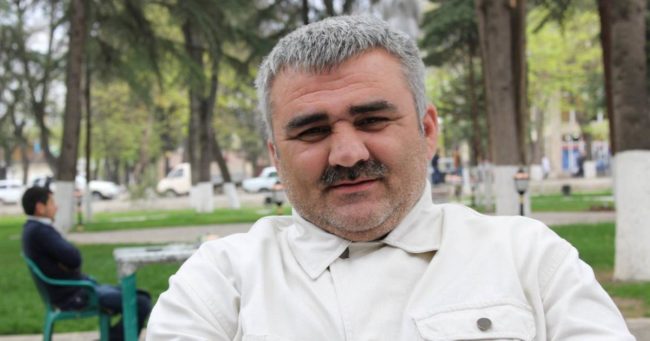
 A court in Baku has denied bail to Afgan Mukhtarli, an Azerbaijani journalist abducted from Tbilisi in May. His lawyers say they plan to appeal the decision.
A court in Baku has denied bail to Afgan Mukhtarli, an Azerbaijani journalist abducted from Tbilisi in May. His lawyers say they plan to appeal the decision.
According to his lawyer Zibeyda Sadigova, Mukhtarli suffers from diabetes and heart disease and has been denied proper treatment in jail.
Sadigova appealed to Baku’s Nasimi District Court on 28 September with a motion to release the journalist on bail. According to her, the defence had two reasons to ask the court for granting Mukhtarli bail.
‘Firstly, there are no ongoing investigative activities’, Caucasian Knot quoted her as saying. According to Sadigova, the second reason was that Mukhtarli suffers from a ‘severe form of diabetes’ and his heart disease has worsened since his detention, but he is unable to get treatment in prison.
Mukhtarli was last seen in Georgia by his friend on the evening of 29 May. After failing to return home, he resurfaced again in Azerbaijan charged with what his lawyer calls ‘bogus charges’. The journalist has been in pre-trial detention in Baku, charged with smuggling €10,000 ($11,200), border trespass, and disobeying border guards.
Georgian authorities under pressure
The case has faced widespread criticism from international organisations and media rights watchdogs, who have criticised both Georgian and Azerbaijani authorities.
The European Parliament condemned Mukhtarli’s abduction on 15 June, and called for answers from Georgian authorities.
The EU–Georgia Parliamentary Association Committee, which consist of Georgian officials, MEPs, and EU officials in Georgia, also condemned Mukhtarli’s abduction in its final statement after a 20 September meeting in Tbilisi. The Committee called his arrest ‘illegal’ and urged Georgian authorities to ‘pursue investigation and the judicial proceedings, in a thorough and effective manner, in order to clear up this case’.
During a meeting with Tamar Chugoshvili, deputy chair of Georgia’s Parliament, OSCE Representative on Freedom of the Media Harlem Désir expressed concern at Mukhtarli’s abduction.
Chugoshvili responded that the authorities took a ‘serious political decision’ earlier this Summer by suspending the head of the Border Police and chief of Counterintelligence in their investigation.
On 19 September, British Ambassador to Georgia Justin McKenzie Smith said it was important for Georgia’s reputation to ‘investigate the alleged abduction’ of the journalist.
Meanwhile, Leyla Mustafayeva, Mukhtarli’s wife, has claimed she may be the ‘target of Azerbaijani security services’ as she has been spied on. She published photos of men she alleged had been following her on 19 September, claiming this has remained uninvestigated. Georgia’s Prosecutor’s Office say they have launched an investigation.
Mukhtarli, who has worked as an investigative journalist for the Institute for War and Peace Reporting, Berlin-based Azerbaijani media outlet Meydan TV, and others, was awarded with Pavel Sheremet Journalism Award 2017 on 29 September by the Eastern Partnership Civil Society Forum.




 5 October 2017
5 October 2017


